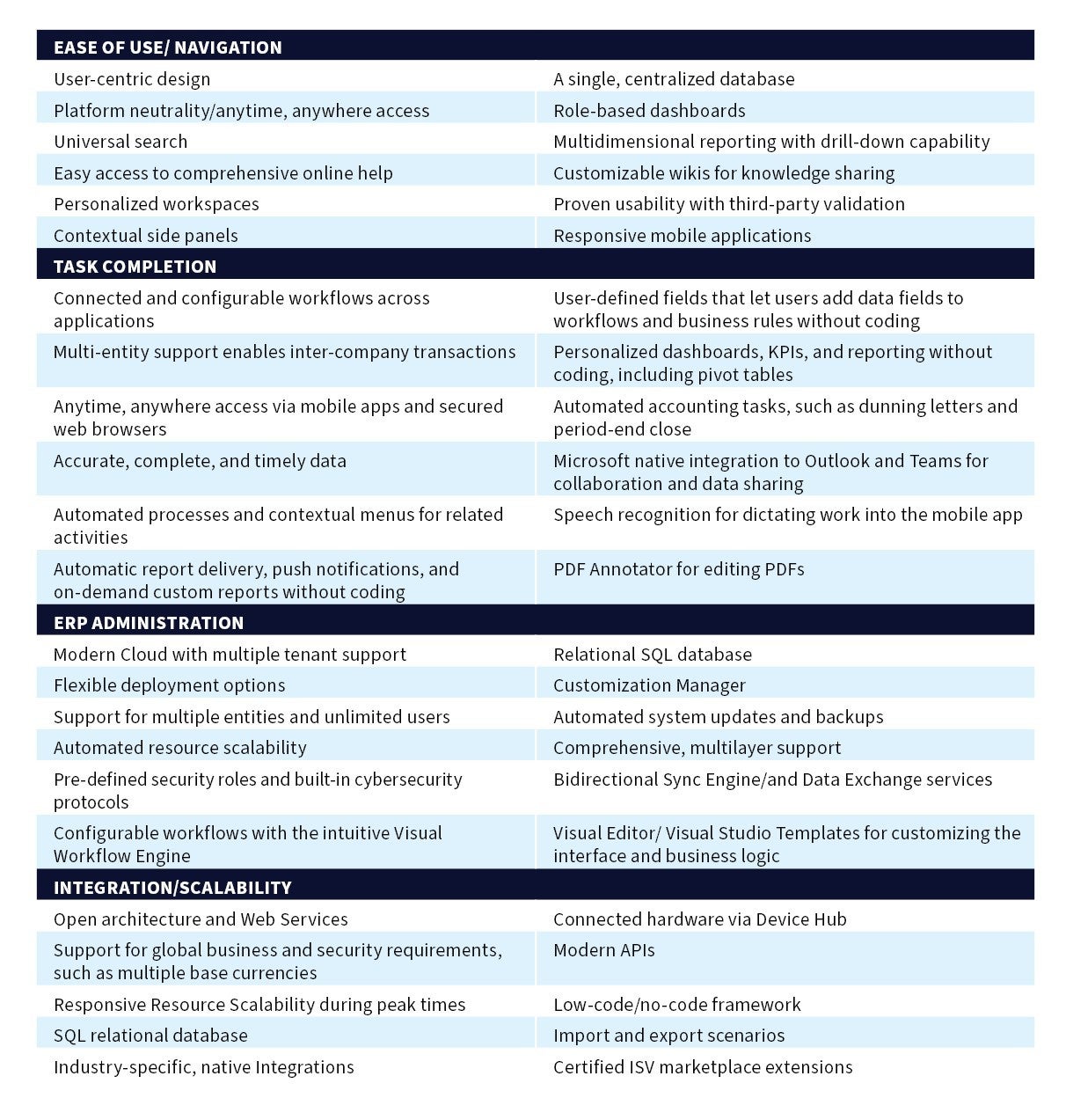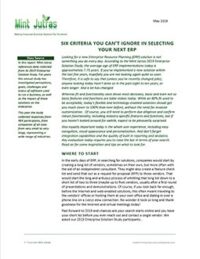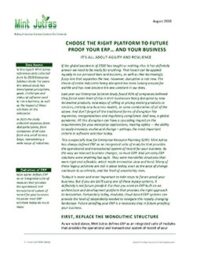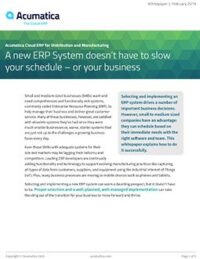Why Choose Cloud ERP?
Today, there are few—if any—businesses that are managing their operations with manual, spreadsheet-based processes. Many embraced technology years ago, becoming more efficient and profitable as a result. Unfortunately, their once-new and sophisticated technology is fast-becoming obsolete in today’s global and digital economy.
This is where a cloud-based Enterprise Resource Planning (ERP) solution comes into play. As an intuitive, innovative, and integrated business management tool, a cloud ERP solution brings an organization’s data, departments (e.g., sales, financials, CRM, human resources, etc.), and critical third-party applications onto a single, centralized platform. A cloud ERP solution provides a 360° view of a business while also standardizing business processes, increasing business-wide collaboration, and promoting strategic, data-driven decisions.
And choosing a cloud ERP solution means businesses can easily and effectively adapt to future business growth.
Cloud ERP vs On-Premises ERP: what is the difference?
There are a few distinct differences between a cloud ERP and an on-premises ERP solution, and they hinge on one important factor: how you implement the solution.
An on-premises ERP solution is installed on a company’s physical servers, and the servers are stored in its own facility. The company’s IT team shoulders the responsibility for implementing, deploying, and maintaining the software, which includes loading the software on employees’ devices, ensuring updates happen regularly, and keeping the entire network secure. In terms of cost, the initial investment includes buying the hardware and the software license as well as paying for an expensive but knowledgeable IT staff. Additional long-term costs include paying to replace aging or failing hardware.
In comparison, a cloud ERP solution is accessed via the internet with the IT infrastructure located in virtual servers. Because users connect to the ERP solution using any web-enabled device, they have unfettered, any time access to their critical business data from any location. Additionally, the cloud ERP vendor maintains the servers in its datacenters, providing automatic software update, hardware upgrade, and enterprise-level data security services as part of their subscription fee.
How to choose the right Cloud ERP system for your business?
5 ERP Selection Steps
Choosing the right cloud ERP system for your business is a critical decision. There are many factors to consider, including your specific business requirements, financial constraints, timeline, and industry specifications.

Here are some steps to go through when choosing the right cloud ERP system for your business:
- Identify pain points: The first step is to identify the pain points that your business is facing. What are the areas where you are not getting the data or insights you need? What are the processes that are inefficient or time-consuming? Once you have identified your pain points, you can start to look for a cloud ERP solution that can help you address them.
- Examine existing tech stack: The next step is to examine your existing tech stack. What software are you currently using? What are the strengths and weaknesses of these systems? How well do they integrate with each other? The goal is to get a clear understanding of your current IT landscape so that you can choose a cloud ERP solution that will fit seamlessly into your environment.
- Set budget: Cloud ERP systems can vary in price, so it’s important to set a budget before you start your search.
- Consider hosting options: There are two main hosting options for cloud ERP solutions: public cloud and private cloud. Public cloud solutions are hosted by the vendor and are accessible to multiple businesses. Private cloud solutions are hosted by your own IT department or a third-party hosting provider. The hosting option you choose will depend on your specific needs and requirements.
- Determine industry specific needs: If your business is in a specific industry, such as manufacturing, healthcare, or retail, you’ll need to make sure that the cloud ERP solution you choose meets the specific needs of your industry. For example, a cloud ERP solution for a manufacturing company will need to have features that track inventory levels and manage production schedules.
Once you have considered all of these factors, you can start to narrow down your choices and choose the right cloud ERP solution for your business.
Choosing the right cloud ERP system is an important decision, but it doesn’t have to be overwhelming. By following these tips, you can find a system that meets your business needs and helps you achieve your goals.
Understanding the differences between cloud and on-premises ERP solutions will help you in your search for the right ERP solution. But recognize that this project isn’t a one-person endeavor. Finding the right ERP solution requires the assembling of a project team made up of strong representatives from all areas of the business—including finance, sales, customer service, production, IT, and more—who will fill certain roles.
Once your team is built, its initial job will be to communicate the ERP implementation plan to the organization at large with the goal of unifying every team member around the idea before the implementation commences. One way to ensure robust organizational support is to encourage team members to share which features they’d most like to see in the new ERP solution. As end users, they know what will—or will not—help make their jobs easier.
From here, the project team is ready to choose the right ERP solution.
 Canada (English)
Canada (English)
 Columbia
Columbia
 Caribbean and Puerto Rico
Caribbean and Puerto Rico
 Ecuador
Ecuador
 India
India
 Indonesia
Indonesia
 Ireland
Ireland
 Malasya
Malasya
 Mexico
Mexico
 Panama
Panama
 Peru
Peru
 Philippines
Philippines
 Singapore
Singapore
 South Africa
South Africa
 Sri-Lanka
Sri-Lanka
 Thailand
Thailand
 United Kingdom
United Kingdom
 United States
United States





